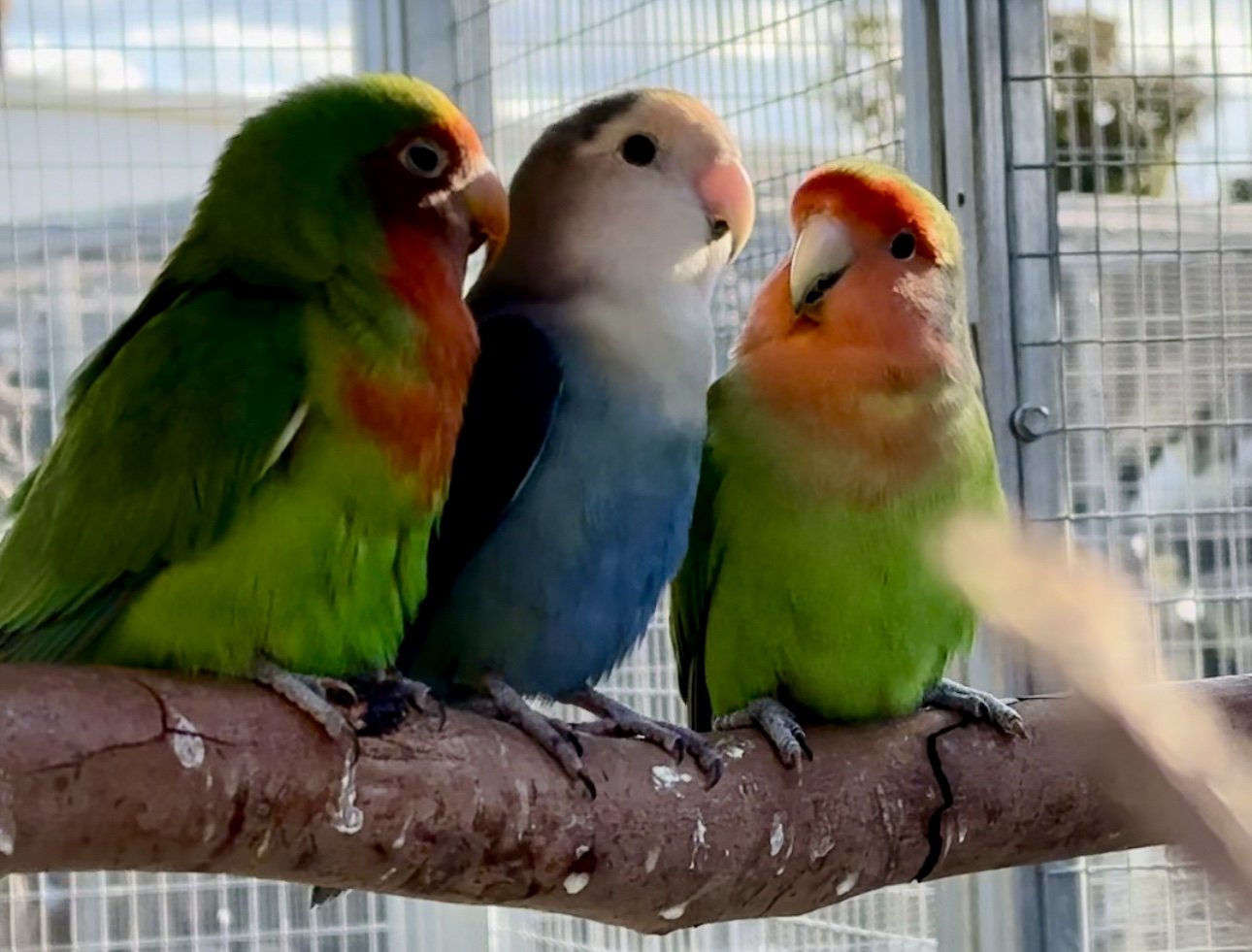The reality of small bird rescue
We care for hundreds of birds at this sanctuary. Many weeks can go by with everyone being healthy and happy. Then some weeks we can suddenly lose multiple within a few days.
This sounds horrible, but sadly, this is often the reality when running a rescue for small pet birds.
Many of the birds will already be compromised from mistreatment or neglect in previous homes.
Many will only be here a short time because their bodies can finally rest.
It’s rough. But it’s not unusual.
Small(er) bird rescue is hard.
Emotionally, financially, physically, psychologically.
Birds often come to us in need of vet care – whether known or not by the people. We get these birds the treatment they require, which is sometimes surgery. We are lucky enough to have amazing supporters to help us fund these.
Buddy, a budgie who came to us after being saved from a breeder who planned to ‘dispose’ of him due to a mutilated leg, now lives a quality life with our special needs birds.
Buddy, prior to his leg amputation
Buddy’s story is one of the happy ones. Small birds are notoriously fragile and difficult to operate on, and often succumb to anaesthesia or simply the stress on their body.
It is difficult to admit, but we have had more birds not make it through surgery, than we have had success, despite the best efforts of the vets.
A large number of the birds we take in are originally from unethical breeders, whose practices – often including inbreeding, overbreeding, malnutrition, and unsanitary environments – are common, unmonitored, and largely legal.
It is horrific, and it is painful.
But you know what, emotionally at least, is the hardest? Having people take small bird care and welfare as a joke.
The people who say: ‘it’s just a bird’.
People have told me they don’t tell people when their beloved budgie or canary has died, because the first time the person responded ‘it’s just a bird’.
Or people who respond like what happened to me one day: a bird arrived at the sanctuary, clearly unwell, and a few hours later had passed.
This person said to me: ‘that’s that problem dealt with’.
It can be difficult to explain – but shouldn’t be difficult to understand – the emotional impact each bird that comes through rescue has on the people helping them.
That immediate rush of affection for that tiny little creature.
The need to alleviate their discomfort or distress.
The aching desire to finally give them the opportunity to live like they were always meant to.
But then… there’s always so many battles. For every bird rescued, countless others are in need for infuriatingly preventable reasons.
Small birds being unethically overbred, thanks to the ease and cheapness.
Many of these birds going to pet shops, where injuries and illnesses often go unseen or ignored… then they’re the victims of impulse buying.
Stores having sales on budgies, canaries, finches, and other small birds, because they’ve got too much stock and need to move them on.
Stores having ‘discount bins’ with imperfect birds. Yes, this is a thing.
Small bird rescuers live with the knowledge that many of these little lives are short, and the heart is so often shattered, unable to repair as the next life is fought for.
Small birds are more vulnerable. They are incredible, resilient, adaptive… but the reality is, if illness or ailment plagues them, they are less likely to recover. Worse, by the time people see the symptoms, it’s usually advanced and too late.
We have the honour and the heartache of seeing so many birds get to experience that first taste of freedom and happiness, just to have it torn from them weeks, days, or even hours later, when their bodies finally give in to their suffering.
Small bird rescue is hard, but their suffering is worse.



